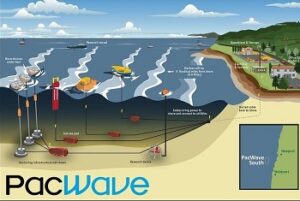Tag Archives: lobster population
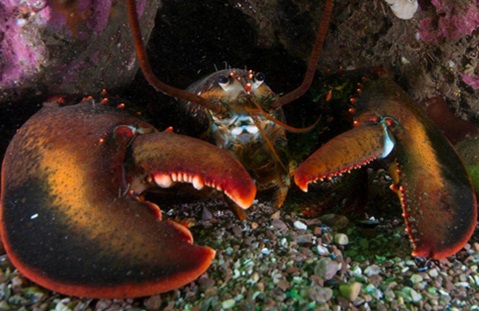
American lobster population, habitat preferences shifting, study finds
American lobsters along Maine’s coast have relocated to new habitats, while the population simultaneously shrunk in abundance and grew older, according to a new study by University of Maine researchers. For decades, the vast majority of adult lobsters resided in majority of adult lobsters. This knowledge helped inform longtime conservation efforts and regulations within the more than $740 million fishery. A team of UMaine scientists, however, found that from 1995-2021, occupancy of boulder habitats dropped 60%. Meanwhile, the number of lobsters residing in sediment or featureless ledge habitats, both of which have little to no geological features to use as shelters, increased 633% and 280%, respectively. Lobster population density across all types of habitats declined too, meaning they are fewer in number and their populations are more spread out. more, >>CXLICK TO READ<< 16:20
Gulf of Maine lobsters are experiencing a housing crisis
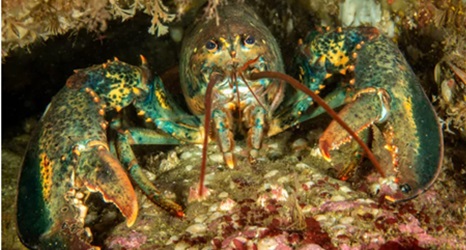 Lobster fishing has been a good business in the Gulf of Maine for a long time. With the exception of a few notable dips, both the landings and value of the catch have been on an upward swing for decades. Between 1984 and 2014, the lobster population in the Gulf of Maine jumped an estimated 515 percent, while simultaneously declining by 78 percent in southern New England as the water warmed in both regions. While it’s started to decline in recent years, numbers are still far higher than they were several decades ago. The result? A lobster housing crisis. “The warming sea temperatures have actually created a real sweet spot for lobster reproduction,” said Brian Skerry, a National Geographic photographer and producer on the recent GBH/PBS series Sea Change, which explores the impact of climate change on the Gulf of Maine. more, >>CLICK TO READ<< 17:51
Lobster fishing has been a good business in the Gulf of Maine for a long time. With the exception of a few notable dips, both the landings and value of the catch have been on an upward swing for decades. Between 1984 and 2014, the lobster population in the Gulf of Maine jumped an estimated 515 percent, while simultaneously declining by 78 percent in southern New England as the water warmed in both regions. While it’s started to decline in recent years, numbers are still far higher than they were several decades ago. The result? A lobster housing crisis. “The warming sea temperatures have actually created a real sweet spot for lobster reproduction,” said Brian Skerry, a National Geographic photographer and producer on the recent GBH/PBS series Sea Change, which explores the impact of climate change on the Gulf of Maine. more, >>CLICK TO READ<< 17:51
Lobstermen and Scientists See a Fishery in Flux
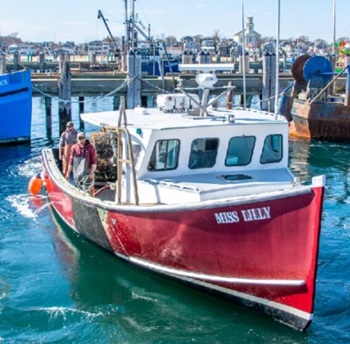 While overall the fishery seems stable, some lobstermen are seeing changes that have them worried about its future. Scientists are looking into what role the changing climate may be playing in those changes, but they don’t have definitive answers. “It’s horrible,” said Mike Rego, a lobsterman and owner of the F/V Miss Lilly who operates out of Provincetown. “Last year was the worst year I ever had.” Dana Pazolt, another Provincetown lobsterman who owns the F/V Black Sheep, said that the last four years have been slim for lobsters around the Outer Cape. “You’ve got to hunt for them,” he said. “I can’t tell you why that is.” The surface waters of the Gulf of Maine are warming at a rate of about one degree per decade, faster than 99 percent of the world’s oceans, according to the Gulf of Maine Research Institute. Meanwhile, in other areas, warming has already had an effect — it played a major role in causing the collapse of the lobster fishery in Long Island Sound in 1999. more, >>CICK TO READ<< 21:20
While overall the fishery seems stable, some lobstermen are seeing changes that have them worried about its future. Scientists are looking into what role the changing climate may be playing in those changes, but they don’t have definitive answers. “It’s horrible,” said Mike Rego, a lobsterman and owner of the F/V Miss Lilly who operates out of Provincetown. “Last year was the worst year I ever had.” Dana Pazolt, another Provincetown lobsterman who owns the F/V Black Sheep, said that the last four years have been slim for lobsters around the Outer Cape. “You’ve got to hunt for them,” he said. “I can’t tell you why that is.” The surface waters of the Gulf of Maine are warming at a rate of about one degree per decade, faster than 99 percent of the world’s oceans, according to the Gulf of Maine Research Institute. Meanwhile, in other areas, warming has already had an effect — it played a major role in causing the collapse of the lobster fishery in Long Island Sound in 1999. more, >>CICK TO READ<< 21:20
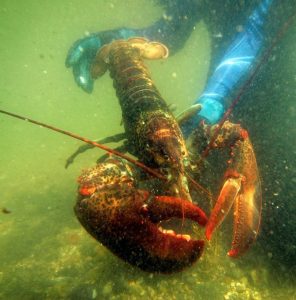
Maine’s lobster population will drop but fishery ‘not doomed’
The lobster population in the Gulf of Maine could decline by nearly two-thirds by 2050, according to a scientific study released this week. As bad as that sounds, scientists and industry representatives say the demise of the most valuable single-species fishery in the country is unlikely. “It doesn’t mean Maine’s lobster fishery is doomed,” said Andrew Pershing, chief scientific officer at Gulf of Maine Research Institute and a co-author of the study. >click here to read< 10:17
Nova Scotia young lobster population shows no sign of decline
 Federal fisheries scientists say their most recent sampling of juvenile lobster in southwest Nova Scotia indicate a decade-long trend of abundant populations is holding steady. “It’s closer to the long-term average. Not the extreme high or low. Somewhere along the middle of what we’ve seen,” said Adam Cook, a federal research scientist. Canada’s Fisheries and Oceans department has three sites in southwest Nova Scotia where it captures juvenile lobsters after they settle to the ocean floor. Read the article here 10:54
Federal fisheries scientists say their most recent sampling of juvenile lobster in southwest Nova Scotia indicate a decade-long trend of abundant populations is holding steady. “It’s closer to the long-term average. Not the extreme high or low. Somewhere along the middle of what we’ve seen,” said Adam Cook, a federal research scientist. Canada’s Fisheries and Oceans department has three sites in southwest Nova Scotia where it captures juvenile lobsters after they settle to the ocean floor. Read the article here 10:54
Symposium offers clues to how lobsters adapt to climate change
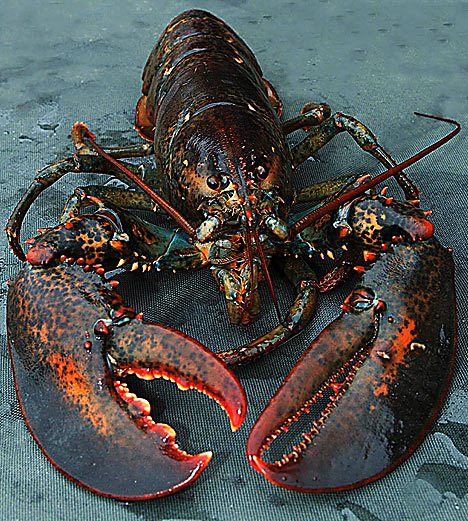 While he’s the first to admit predicting the impact of climate change on the lobster population is far from an exact science, Dr. Remy Rochette says some models he works with in a joint project between the University of New Brunswick and the Department of Fisheries and Oceans do offer clues. Rochette was one of the keynote speakers at a Canada-U.S. lobster symposium held recently in Charlottetown focusing on the American lobster in a changing ecosystem. Read the rest here 12:01
While he’s the first to admit predicting the impact of climate change on the lobster population is far from an exact science, Dr. Remy Rochette says some models he works with in a joint project between the University of New Brunswick and the Department of Fisheries and Oceans do offer clues. Rochette was one of the keynote speakers at a Canada-U.S. lobster symposium held recently in Charlottetown focusing on the American lobster in a changing ecosystem. Read the rest here 12:01
Ocean Warming Blamed For Northward Shift In Lobster Population
 The lobster population has crashed to the lowest levels on record in southern New England while climbing to heights never before seen in the cold waters off Maine and other northern reaches — a geographic shift that scientists attribute in large part to the warming of the ocean. The trend is driving lobstermen in Connecticut and Rhode Island out of business, ending a centuries-old way of life. In northern New England, meanwhile, lobsters are booming. The population in the Gulf of Maine — a body of water,,, Read the rest here
The lobster population has crashed to the lowest levels on record in southern New England while climbing to heights never before seen in the cold waters off Maine and other northern reaches — a geographic shift that scientists attribute in large part to the warming of the ocean. The trend is driving lobstermen in Connecticut and Rhode Island out of business, ending a centuries-old way of life. In northern New England, meanwhile, lobsters are booming. The population in the Gulf of Maine — a body of water,,, Read the rest here
A big shift is coming to the Maine lobster population — and it could devastate the local economy
 While we can’t know for sure what the future holds, it seems that as ocean temperatures continue to increase, lobsters will likely keep moving north, study researcher Malin Pinsky, of Rutgers University, told Business Insider. At a rate of 43 miles per decade, it could only be 30 years or so until Maine lobsters are mostly in Canadian waters. Two factors will impact how quickly this happens, Pinsky told Business Insider: Greenhouse gas production and the rate of ocean temperature increase. If temperatures and gasses continue to rise, Pinsky says lobsters moving to Canada is, “not out of the question.” Read the rest here 13:42
While we can’t know for sure what the future holds, it seems that as ocean temperatures continue to increase, lobsters will likely keep moving north, study researcher Malin Pinsky, of Rutgers University, told Business Insider. At a rate of 43 miles per decade, it could only be 30 years or so until Maine lobsters are mostly in Canadian waters. Two factors will impact how quickly this happens, Pinsky told Business Insider: Greenhouse gas production and the rate of ocean temperature increase. If temperatures and gasses continue to rise, Pinsky says lobsters moving to Canada is, “not out of the question.” Read the rest here 13:42

































